

Affordable and clean energy
Good health and well-being
Life below water
Climate action
Responsible consumption and production
Partnerships for the goals
Clean water and sanitation
ViWaT-Engineering
Coordinator: Karlsruhe Institute of Technology (KIT) - Faculty of Civil Engineering, Geo and Environmental Sciences
Address: Kaiserstraße 12, 76131 Karlsruhe
Phone: +49 721 608-47850
Email: stefan.norra(at)kit.edu
ViWaT-Planning
Coordinator: U+Ö Umwelttechnik+Ökologie im Bauwesen - Faculty of Civil and Environmental Engineering, Ruhr-University Bochum
Address: Universitätsstraße 150, 44780 Bochum
Phone: +49 234 3227995
Email: harro.stolpe(at)rub.de
ViWaT-Operation
Coordinator: IEEM gGmbH - Institute for Environmental Technology and Management at Witten/Herdecke University
Address: Alfred-Herrhausen-Str. 44, 58455 Witten
Phone: +49 2302-914010
Email: mail(at)uni-wh-ieem.de
German project partners
- Aquantec GmbH, Karlsruhe
- bbe Moldaenke GmbH, Schwentinental
- Disy Informationssysteme GmbH, Karlsruhe
- German Water Centre (TZW), Karlsruhe
- Fraunhofer UMSICHT, Oberhausen
- Catholic Academic Exchange Service (KAAD), Bonn
- ribeka GmbH, Bornheim
- SEBA Hydrometrie GmbH & Co. KG, Kaufbeuren
- TU Dortmund University
- Technical University of Cologne
- Tilia GmbH, Leipzig
- MARTIN Systems GmbH, Berlin
Vietnamese project partners
- DMHCC – Department of Meteorology, Hydrology and Climate Change, Hanoi
- HCMUNRE - Ho Chi Minh City University of Natural Resources and Environment, Ho Chi Minh
- MWII – Mekong Water Innovation Institute, Ho Chi Minh
- NAWAPI - National Centre of Water Resources Planning and Investigation, Hanoi
- SISS - Southern Institute of Social Science, Ho Chi Minh
- SIWRR - Southern Institute of Water Resources Research, Ho Chi Minh
- SIWRP – Institute of Water Resources Planning, Ho Chi Minh
- TLU - Thuyloi University, Hanoi
- VAH – Vietnam Association of Hydrogeologists, Hanoi
- VAST - Vietnam Academy of Science and Technology, Hanoi
- VAWR – Vietnam Academy for Water Resources, Hanoi
- VIGMR – Vietnam Institute of Geosciences and Mineral Resources, Hanoi
- VNU-HUS - Vietnam National University, University of Science, Hanoi
Integrated Solutions for Sustainable Development in the Mekong Delta
The Mekong Delta in Vietnam is facing increasing loss of land and freshwater resources. This is caused on the one hand by climate change, on the other hand by humans. The German-Vietnamese joint project ViWaT-Mekong is developing sustainable strategies and technical measures to protect the delta. ViWaT Mekong is coordinated in three independent research associations, which allows for the consideration and processing of a multitude of interdisciplinary topics in the areas of coastal protection, landfall, sustainable water management and regional water and land use planning.
The endangered delta
In the Mekong Delta in southern Vietnam, about 18 million people live in an area that is about the size of Baden-Württemberg in Germany. Climate change and other human-induced influences are putting a heavy strain on this economically significant region of Vietnam, which is why the existence of the Mekong Delta is now threatened.
The intensive use of groundwater in recent decades has thus led to a sharp drop in groundwater levels and to a sustained landfall of up to several centimetres per year. The annual sea-level rise of about two to three millimetres caused by climate change is added to these factors. Another problem is strong erosion in the coastal areas. One of the causes is the construction of barrages in the neighbouring countries, especially in China and Laos, which contain sediments and thus restrict their transport to the Mekong Delta. This and the loss of the protective mangrove forests mean that, in parts, the coastal areas are eroded up to 50 meters from the sea each year. But the banks of the canals and rivers are also damaged by erosion. The existing water management of the surface waters is regulated with the help of hundreds of locks and weirs and serves as a basis for diverse land use (including rice cultivation, fruit cultivation, fish farming and shrimp farming) with their different demands on the salinity of the water. The combined effect of climate-induced seawater rise and local land subsidence poses an enormous threat to these systems. An additional burden on the regional availability and quality of existing freshwater resources is the largely untreated wastewater.
In the face of this significant pressure, the Vietnamese government has begun to redesign water and land use in the Mekong Delta. Various existing research and planning results as well as planned activities at the Vietnamese and international level are already contributing to this.
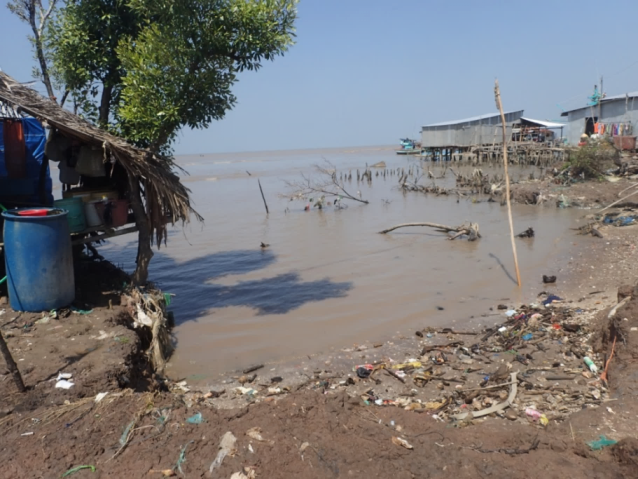
One joint project - three sub-projects
The Karlsruhe Institute of Technology (KIT), together with research groups from the Ruhr University Bochum (RUB) and the University of Witten / Herdecke (IEEM), launched the interdisciplinary joint project ViWaT-Mekong to make another strong contribution to the sustainable improvement of water and land use in the Mekong Delta.
The work of ViWaT-Mekong focuses in particular on coastal protection, sustainable water management and regional water and land use planning. These topics are coordinated in three independent research associations that combine engineering, economics, geoscientific and planning disciplines.
ViWaT-Engineering (KIT) focuses on the topics of coastal protection and land reclamation, landfall, water dynamics and the identification of sustainable water resources. The aim of the group is the development of effective coastal protection measures and the assessment of local water availability and quality with regard to the use of alternative water resources to reduce landfall.
ViWaT-Planning (RUB) is about sustainable regional water and land use planning. The group develops assessment tools for integrated water and land use planning as well as recommended measures to avoid problems and conflicts concerning water quantity and quality management.
ViWaT-Operation (IEEM) focuses on water supply and wastewater treatment. The aim is to develop a replicable, financially and ecologically sustainable concept for micro-waterworks and aquaculture wastewater treatment.
Holistic problem solutions
Through the interdisciplinary cooperation of German research institutions and industry partners with Vietnamese partner institutions from politics, science and administration, the ViWaT projects contribute to finding sustainable and holistic solutions to the challenges of the Mekong Delta. The concepts, technologies and instructions developed in the project are intended to help protect land and water resources and thereby preserve the Mekong Delta habitat for future generations as well.
For the industrial partners involved, the project offers the opportunity to expand their know-how in the areas covered, to develop new products and technologies, and to open up new markets based on the close cooperation with the Vietnamese partners.
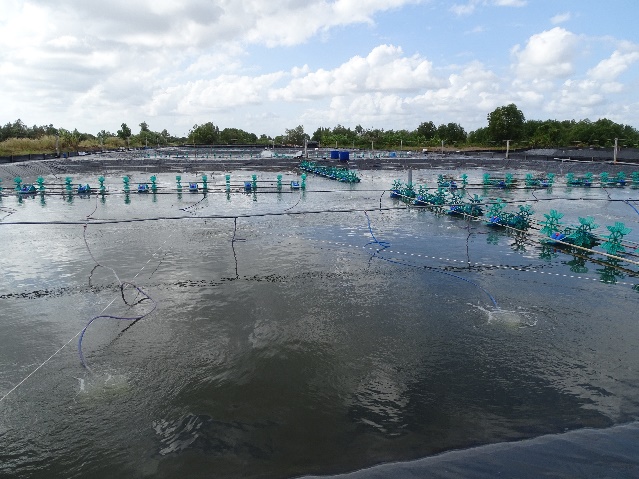
ViWaT Engineering carries out geotechnical exploratory drilling
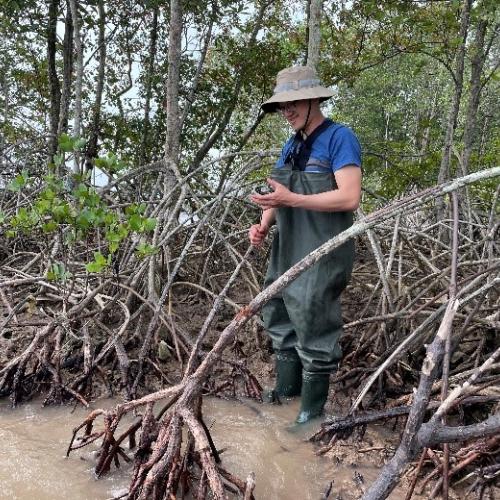
ViWaT-Engineering: Field test of a water quality monitoring station for surface waters

ViWat-Engineering: KIT working to improve water quality in South Vietnam
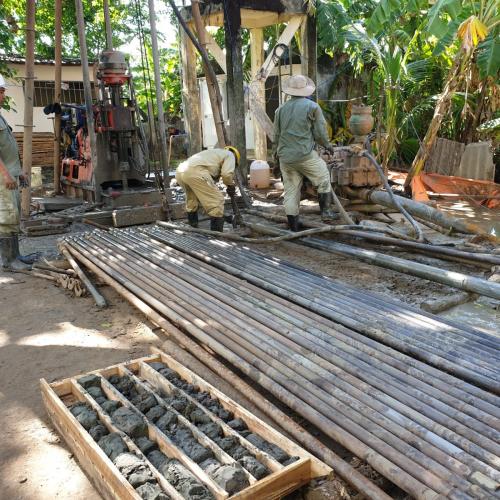
ViWaT Engineering overcomes its challenges in corona times
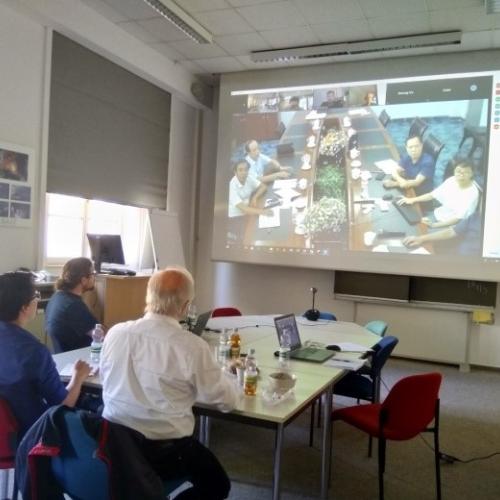
CLIENT II projects in Vietnam network at event in Bonn

